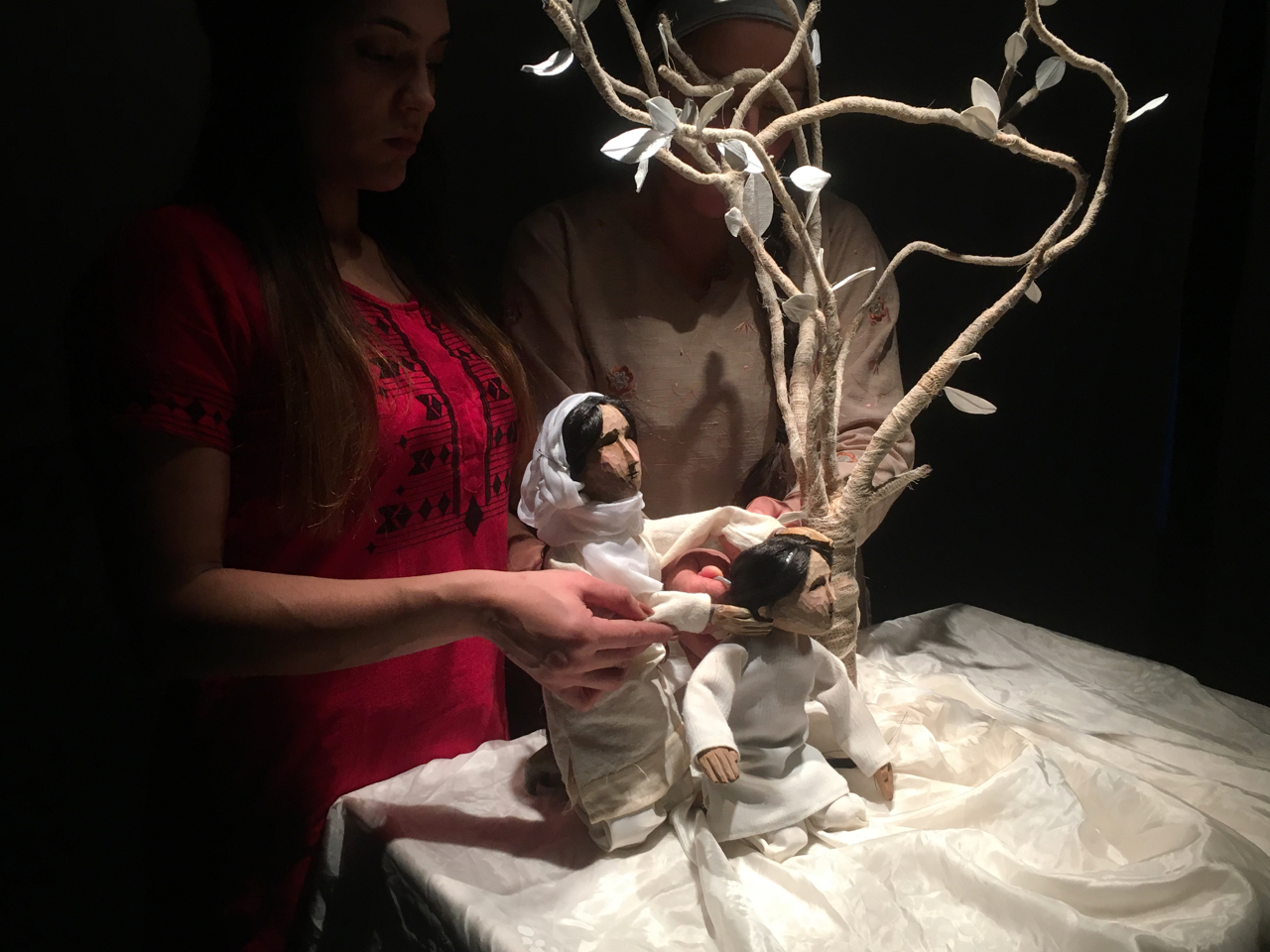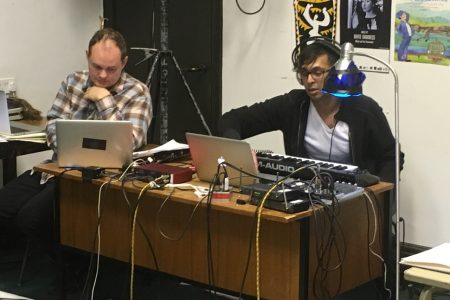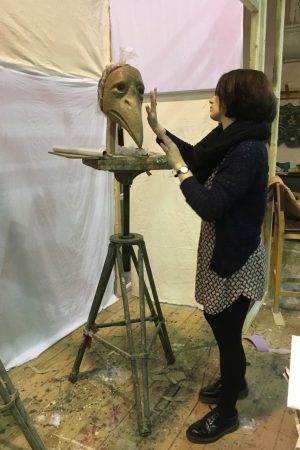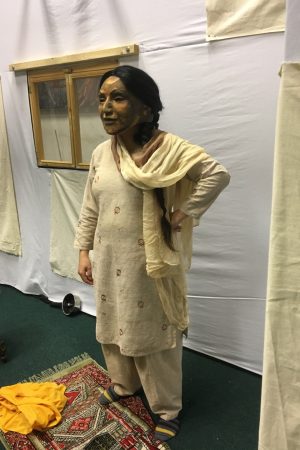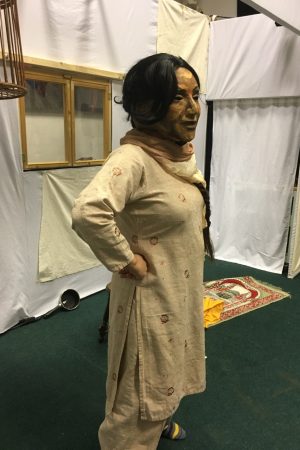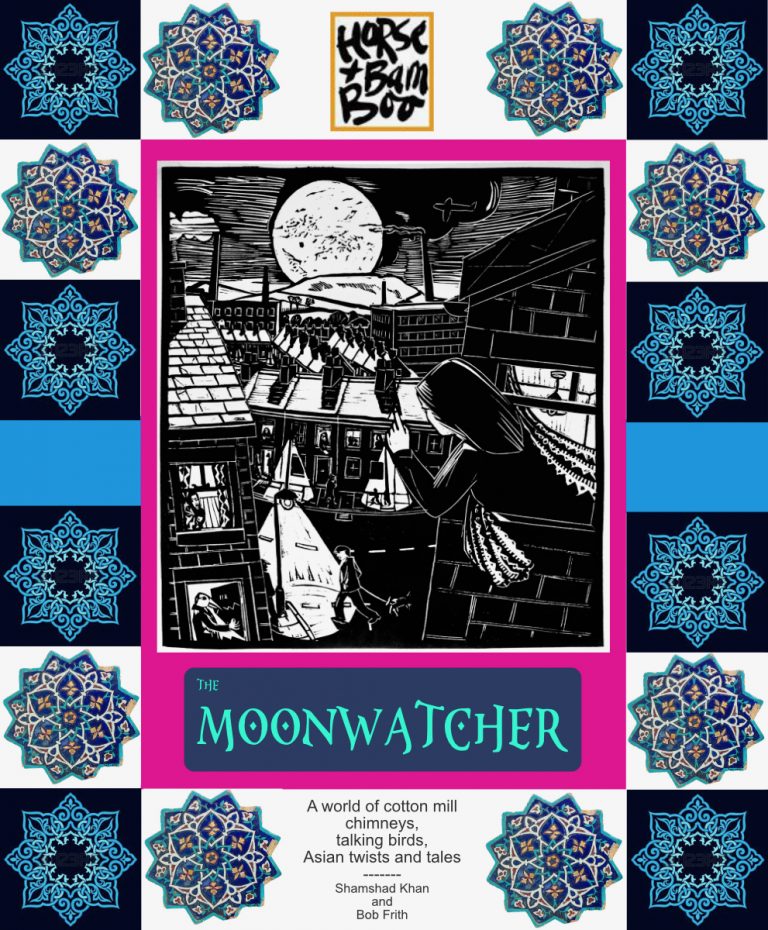 We had always hoped that the Different Moons project would eventually lead to a touring show. The original application to the Heritage Lottery Fund for the project had been written way back in 2013. Because it had been successful the programme of work had dominated my work for almost 4 years. It involved interviews, melas, mushairas, exhibitions and a wide range of community events centred around the local South Asian communities.
We had always hoped that the Different Moons project would eventually lead to a touring show. The original application to the Heritage Lottery Fund for the project had been written way back in 2013. Because it had been successful the programme of work had dominated my work for almost 4 years. It involved interviews, melas, mushairas, exhibitions and a wide range of community events centred around the local South Asian communities.
I hoped that a touring show would be based on the stories told by the first South Asian immigrants to Rossendale. Finding and recording those stories was at the core of the project, so creating a new theatre piece seemed to be the obvious way of bringing all the threads together. When Different Moons came to its end in 2017 Shamshad Khan and I were both determined that we should achieve this. Horse + Bamboo’s new Executive Manager, Esther Ferry-Kennington, agreed with us. Because of the terms of our contract with the Arts Council, however, it was a struggle to find the money for a tour. Thankfully Esther and the Board encouraged us in pursuing the proposal, as for all of us it seemed to be the most fitting way to complete five years of focused creative work.
2018: The Moonwatcher
Early on it became apparent that it was going to be impossible to put together a suitably dramatic story if it was based solely on material gathered from our interviews. It’s possible that we could have chosen to create a more documentary style of production. However neither of us had the desire to take that route. Instead we agree that Shamshad should introduce elements from her own life and experience. We tried hard to keep aspects of the Rossendale interviews whenever possible. Nevertheless the introduction of Shamshad’s own family stories had a profound impact on the direction of our show.
The Moonwatcher was my final work for Horse + Bamboo, both as co-writer and co-director. Fittingly, it was a completely new challenge. Not just in the way that any new theatre piece is, but in looking for a way to balance words, music and images. We ultimately did justice, and gave proper space, to Shamshad’s powerful and emotionally rich language. At the same time we also created an integrated and arresting visual world. I felt that we finally managed both of these things successfully, although it was sometimes a struggle. The words and the images began trading off one another in fascinating ways, and never predictably. We were helped enormously by Arun’s music, which for me could hardly have been bettered. He provided us with an emotional structure that supported the unfolding story perfectly. Equally powerful were Kain Leo’s animated films, which took both the narrative and imagery further than I had imagined. Again, they contributed a lot to the overall impact of the piece.
The cast
We were helped by finding two performers who really rose to the challenge. They were Gemma Khawaja, a puppeteer with Norwich Puppet Theatre who took on the masked roles brilliantly. Gemma lacked previous experience of mask-work, but responded with a puppeteers insight. Hannah Kumari had the difficult role of speaking Shamshad’s lines, which she did with great presence and authority. Hannah played the daughter and narrator, leading the audiences through the complex twists and turns of the story.
After 40 years my final taste of touring theatre was joining Gemma and Hannah for several days on the road in Scotland and North-East England, along with Leon Smith, the technician with the show. The venues included Universal Hall at Findhorn near Moray, a special place that the company had visited on a number of occasions during our horse-drawn days. Several people at Findhorn remembered those earlier visits, and reminisced about our shows. People remembered he company camping in their gardens, and us arriving with our horses and wagons. In those last few days with The Moonwatcher I re-experienced enough of the companionship, hard-work, good humour and the powerful commitment to a show and to its audience, to remind me just why taking stories out into the world in this way had sustained me – and our company – for all of that time.
Feedback:
From Royal Exchange Studio:
“Such a compelling story, so innovative + with the puppet – human dynamic brought something completely original to theatre.”
“What an incredibly moving & powerful show. Fantastic music, visuals & most of all performance by brilliant actors. Lovely show”
From Heaton Community Centre, Newcastle:
“I really enjoyed all the visual aspects of the show. It was great that it covered the attitudes of people in Britain – the way immigrants can feel unwelcome and the complex relationships that can exist between two generations that have experienced very different childhoods.”
“It was a poignant story of love and courage, loss and challenge. The ties that bind us and give us strength can also hold us fast and moving on often needs to be done with love remembered. I really enjoyed the poetry and the stagecraft.”
